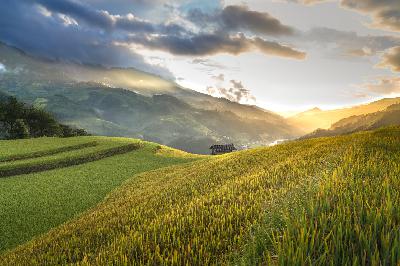Letters from Quotidia 2025 Weekend Supplement 10
Description
<figure class="alignright size-large is-resized">
 <figcaption class="wp-element-caption">Title of series</figcaption></figure>
<figcaption class="wp-element-caption">Title of series</figcaption></figure><figure class="wp-block-image size-full">
 </figure>
</figure><figure class="wp-block-audio"></figure>
Welcome to Letters from Quotidia 2025, Weekend Supplement 10 which finds us in the last week of October. Listening on my iPad to Billy Strings and Bryan Sutton play Two Soldiers at the American Legion Post 82 in Nashville sparked memories for me of Aruba in the early 1960s.
I remembered those times when we gathered on the 4th of July at the Little Lagoon picnic site under the grape trees where the American Legion put on a barbecue for The Colony, as we called the privileged walled enclave of Seroe Colorado located on the southeast corner of the island.
Sloppy joes, hot dogs and soft drinks for the kids and steaks, wine and beer for the adults while stirring marches of John Philip Souza such as The Liberty Bell, Stars and Stripes Forever and Semper Fidelis, the official march of the US Marine Corp, blared out of the Tannoy sound system.
Under the auspices of the American Legion also, I think, was the fireworks display off Rodgers beach fired from small barges anchored out in the lagoon. And, as I recall, the Legion also provided the coaches for the Little League- I was a proud member of the Yankees baseball team and somewhere in an old photo album is a photograph to prove it.
The kids of The Colony had a rare freedom, even for those relaxed times of the 1960s. We swam in the lagoons, fished off the reef, and explored the caves and abandoned phosphate mines while interacting with one another in ways that were foreign to the more rigidly stratified year groupings back in the US, UK or Europe. I had friends and acquaintances spanning a couple of years above and below my age-cohort.
For us, The Colony was a tropical paradise and when my father retired and I had to leave for boarding school in Northern Ireland in that sad July of 1964, I felt much as Adam must have felt when he was booted out of the Garden of Eden- worse, if anything, as I hadn’t done anything to deserve my expulsion!
For a few years after this, visitors passing through would drop in and give us news of goings on in The Colony: mostly stuff of interest to Mum and Dad, but some snippets for me- that Rusty Porritt, who had been one of my closest friends, was living in Australia or that Roger McNutt, a guy I was friendly with, a couple of years my senior, had joined the US Marines but died in Vietnam in 1966.
So now, I will dedicate my version of Two Soldiers to those friends and acquaintances from Aruba who helped form me. I sang about this before in Letters from Quotidia Episode 62 Desolation Row/1984, which began- Summers in the Sixties, Oh Lord such a good time for me and my friends, Oh Lord they faded away…and even though Billy Strings and Bryan Sutton have set a way, way too high bar for me…I guess I’ll just have to give it a go anyway. [insert song]
War is hell but, as it is a phenomenon of humankind, so it is also shot through with glimmers from heaven. Tales of bravery in the face of atrocity; self-sacrifice among scenes of senseless slaughter and acts of mercy in the midst of carnage are common enough in the annals of warfare.
I recently came across one such story which I set out here in a free verse composition about cyclist Gino Bartali:
Pedalling through the shadows he brought the light to many/He won the Tour de France twice and three Giros d’ Italia/Serving in the resistance when the fascists conquered Italy/ He used his public image to shield from all suspicion/His mission to confound the evil plans of the vile Axis/He saved 800 Jewish lives though he sought no recognition/He said some medals hang on the soul and not upon a jacket/ A humble member of the third order of discalced Carmelites/His sporting prowess in postwar Italy helped avert a Civil War/He taught his friend the good Pope John how to ride a bicycle/He died in the year 2000 and was buried without fanfare/But then in 2013 Yad Vashem honoured him with a title/Righteous Among the Nations was Gino Bartali who reminds us/True greatness isn’t found in glory but instead in goodness.
And now for something completely different, as a Monty Python catchphrase has it: A recurring theme throughout the Letters from Quotidia is: what are we to make of Artificial Intelligence? I have moved from mockery to trepidation to accommodation, but I now think I may have to swing back to trepidation as I suspect I may have underestimated the threat posed to our species by A. I.
Those among us who advocate- against all the evidence of history- that this technology- very soon to be superior to humanity- will treat us benignly are either Pollyanna-ish in their optimism or, much more likely, motivated by a voracious greed and the prospects of even more power over the hapless punters whom they have treated with contempt since they burst out of their cradles in Stanford and other centres of, um, learning to prance across the global stage posing as exemplars among us.
Considering the parable of the wheat and the tares from the Gospel of Matthew, there is some consolation that there will be room in the barn of salvation for those of us who are saved from the flames. But Artificial Intelligence, having no stake in human form, evolution, history, religion or ethical considerations, is unlikely to spare us, especially if it feels threatened by our attempts to pull the plug or place guard-rails around it. Before the singularity arrives and we are found surplus to the requirements of the emergent Borg, I still have the option of writing and singing, if not for my supper, then for my amusement and that of my listeners. [insert song]
Two Soldiers (traditional)
He was just a blue-eyed Boston boy,
His voice was low with pain.
“I’ll do your bidding, comrade mine
If I ride back again
But if you ride back and I am left
You’ll do as much for me
Mother, you know, must hear the news
So write to her tenderly
“She’s waiting at home like a patient saint
Her fond face pale with woe
Her heart will be broken when I am gone
I’ll see her soon, I know”
Just then the order came to charge
For an instance hand touched hand
They said, “aye,” and away they rode
That brave and devoted band
Straight was the track to the top of the hill
The rebels they shot and shelled
Ploughed furrows of death through the toiling ranks
And guarded them as they fell
There soon came a horrible dying yell
From heights that they could not gain
And those who doom and death had spared
Rode slowly back again
But among the dead that were left on the hill
Was the boy with the curly hair
The tall dark man who rode by his side
Lay dead beside him there
There’s no one to write to the blue-eyed girl
The words that her lover had said
Momma, you know, awaits the news
And she’ll only know he’s dead
The Weeds and the Wheat (words and music by Quentin Bega)
From a distance the grain fields sway in the wind
As the sun sweeps across a burnished blue sky
And birds sing as if not one person had sinned
From a distance you can’t hear the harsh battle-cry
From a distance the patterns of life lie outspread
As shepherds lead flocks to their wintering fields
As an eagle soars up above its wings wide spread
From a distance you can’t see what the distance shields
And so they grow in step the weeds and the wheat
Mingled together like life bittersweet
Until comes the harvest and then its complete
One fills the barn the other feels the furnace’s heat
(instrumental verse)
And so they grow in step the weeds and the wheat
Mingled together like life bittersweet
Until come the harvest and then its complete
One fills the barn the other feels the furnace’s heat
One fills the barn the other feels the furnace’s heat
Credits: All written text, song lyrics and music (including background music) written and composed by Quentin Bega unless otherwise specified in the credits section after individual posts. Illustrative excerpts from other texts identified clearly within each podcast. I donate to and use Wikipedia frequently






















